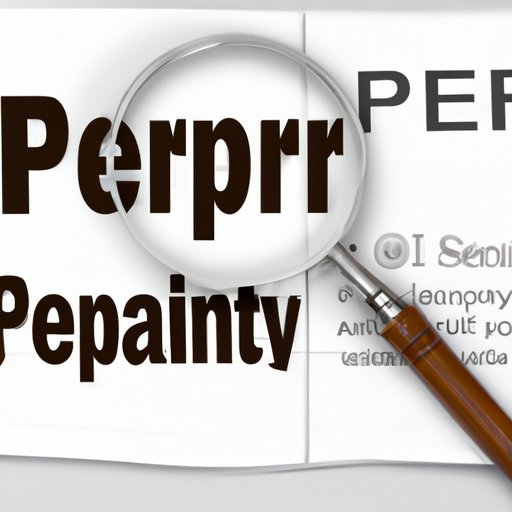Introduction
Have you ever been to a property and wondered who the owner is? Whether you want to rent, buy, or sell a property, knowing the owner is essential. Sometimes, it’s easy to find out who the owner is, especially if they live there or neighbors know them. However, other times it can be challenging, particularly if the property is vacant or an investment property. In this article, we will discuss several methods to find a property owner, including using county property assessor’s offices, property database websites, title searches, tax records, white pages, posting signs, and speaking to neighbors.
Contact the Local County Property Assessor’s Office
The county property assessor’s office keeps track of property records for a specific county. They have a database of ownership, tax, and valuation information that is available to the public.
When contacting the county property assessor’s office, it’s recommended to call or visit in person, as the information is not always available online or may be outdated. At the office, ask for the property owner’s name and address, property description, and current tax status.
The advantages of visiting the county property assessor’s office are the information is free, faster than other methods, and more reliable than online resources.
Use a Property Database Website
Property database websites are available online that maintain information on property ownership, zoning, and assessment. Sites such as Zillow, Realtor, and Redfin have detailed property information to help locate property owners.
Advantages of using a property database website include providing the owner’s name, the property’s current status, tax information, and outstanding loans or debts.
Most property database websites charge a fee for more detailed information or require a subscription to access some features.
Do a Title Search
A title search is a process of examining public records to verify a property’s legal ownership and determine if any liens or judgments are in place. A Title Company can conduct a title search for a fee.
Requesting a title search enables one to discover the property’s owner’s name, mortgage holder, and any loans secured against the property. This information is valuable in assessing the current state of the property.
Costs for a title search can vary and typically depend on the complexity of the search, the state the property is in, and the Title Company’s fees.
Check Tax Records
Checking tax records on a property can reveal the owner’s name and contact information, how much they owe in taxes, and if there are any liens on the property.
Tax records help determine if a property has any outstanding debts or is up to date on its tax payments, a crucial factor in any potential purchase or investment.
The process to access tax records varies as it depends on the county and state the property is located. Some counties provide access to tax records online, while others require visits to the county clerk’s office.
Check White Pages
White pages are an online database containing contact information for people, businesses, and properties. They can be a valuable resource in discovering who owns a property.
To use white pages effectively, one must have the property’s address or the owner’s name. After inputting the necessary information, white pages can provide phone numbers, email addresses, or other contact information that can be used to contact the property owner.
Some white pages may require signing up or buying credits to view or access specific contact information.
Post a Sign
Posting a sign on the property or nearby areas can be an effective way to find the owner of a property. In most cases, the owner or someone that knows them will respond. It’s important to include a phone number, email, or other contact information to maximize the chances of being contacted.
Other methods of notification can be sending letters to the property address, placing an ad in the local newspaper, or plastering flyers in the neighborhood.
Speak to the Neighbors
Speaking to the neighbors is an excellent way to discover the property owner’s identity, especially if they live nearby or have lived there for a long time. Neighbors can provide valuable information on the property’s ownership history, current status, and contact information.
It’s essential to approach neighbors in a friendly, non-invasive manner and be respectful of their privacy. A good way to initiate the conversation is by asking about the history of the neighborhood or the house itself.
The advantages of speaking to neighbors are free information and the potential for a faster response than other methods.
Conclusion
It’s essential to determine the owner of a property, whether one is buying, selling, or renting. This article discussed several methods to find the owner of a property, including contacting the county property assessor’s office, using property database websites, doing a title search, checking tax records, using white pages, posting a sign, and speaking to neighbors. Each method has its advantages and disadvantages and may require varying degrees of cost or time. Regardless of the method used, always be respectful of the person and their privacy.
We encourage our readers to try the methods discussed in this article to find the owner of a property. Doing so will provide valuable information, allowing you to make the most informed decisions about the property.
Our final words of advice are to be persistent, utilize multiple methods, and be patient. Locating the property owner can take time, but the rewards of finding them are well worth the effort.
